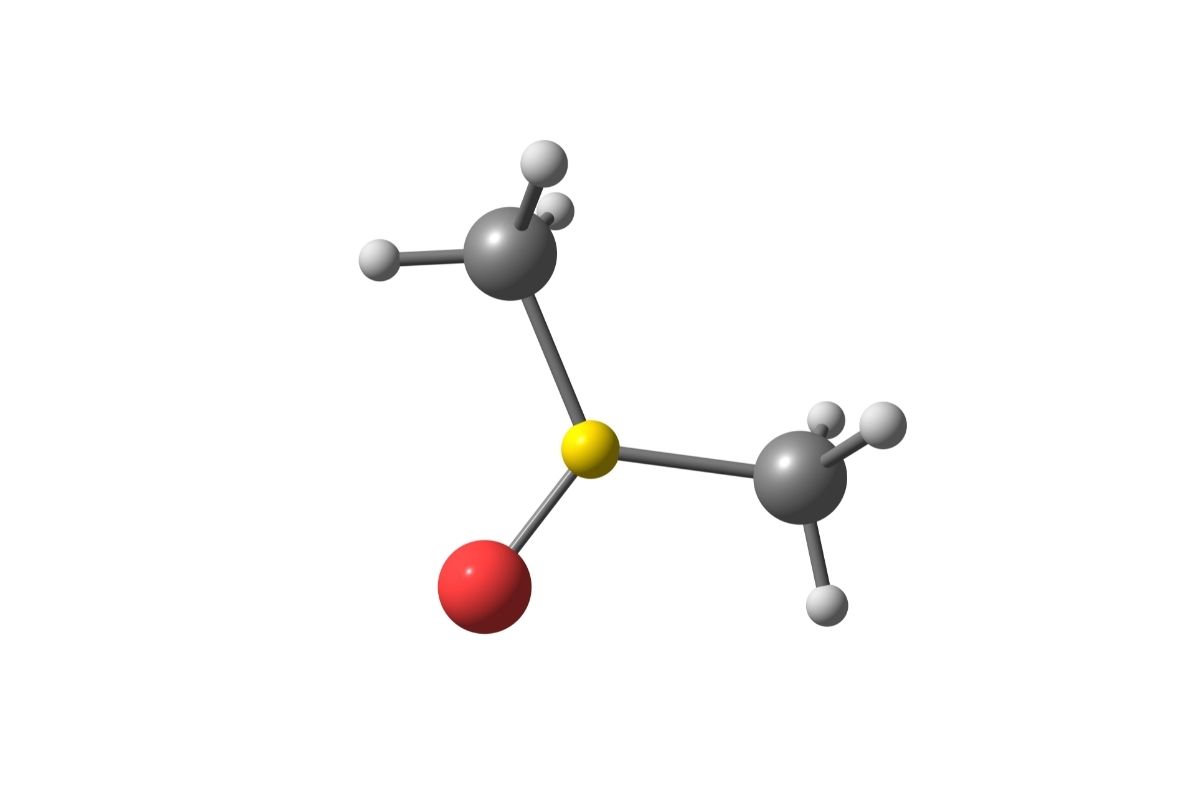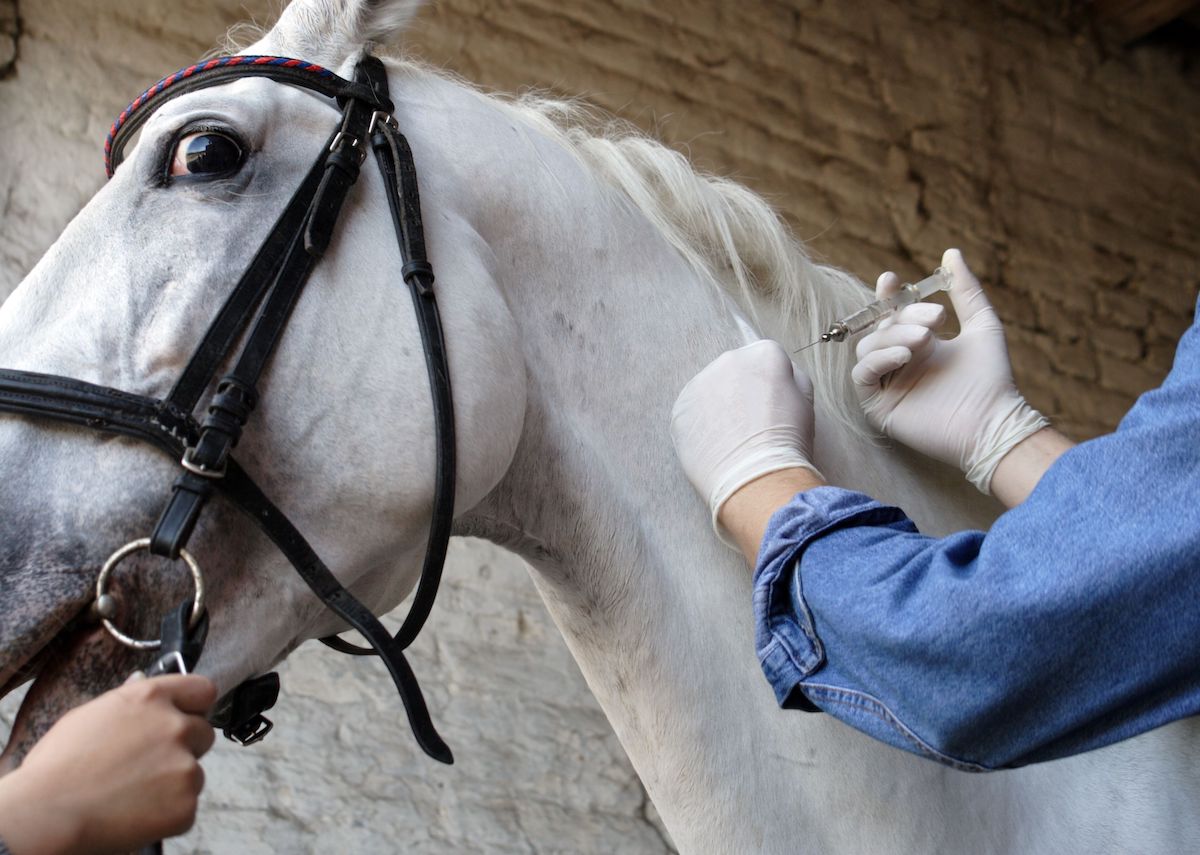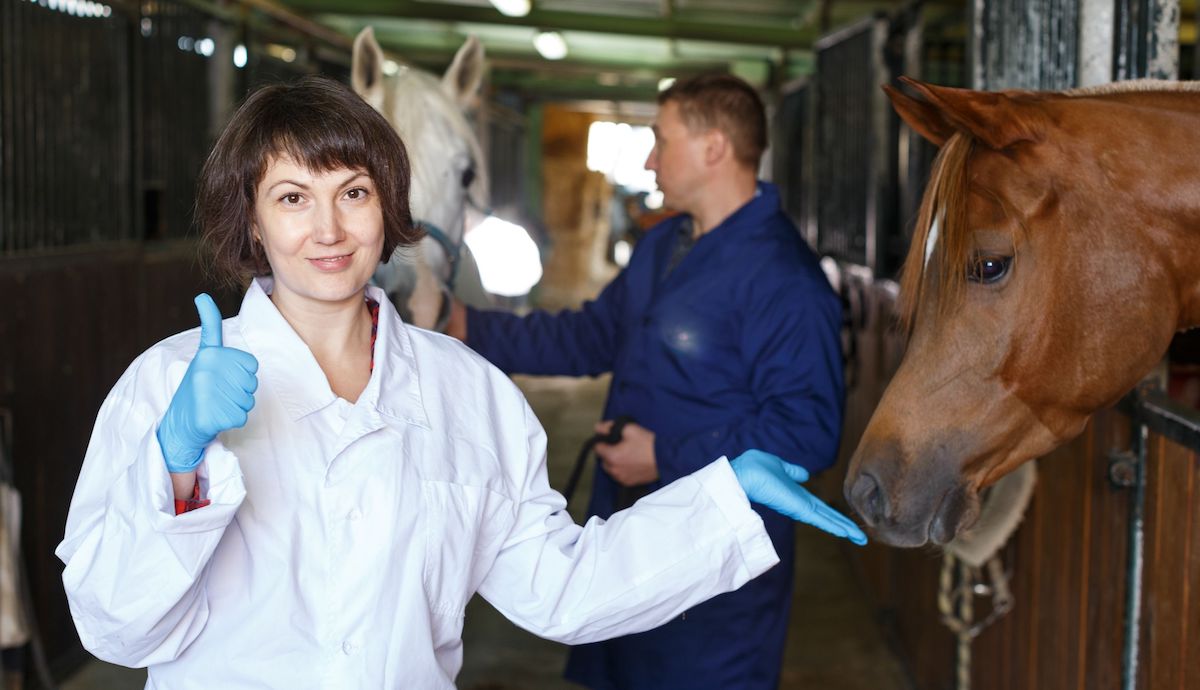What is DMSO Used for in Horses?
DMSO for Horses (or Dimethyl sulfoxide as it is more formally known) seems to be a “wonder drug” that reportedly has some therapeutic benefits on horse patients. DMSO for horses can already be beneficial but combined with certain other drugs, the health effects are amplified. In addition, it is known for its anti-inflammatory and diuretic effects on horses. Many veterinarians and horse owners support using DMSO in horses because of the many testimonials about its efficacy.

How to Use DMSO for Horses
It is not surprising that many horse owners are still wondering, “What is DMSO used for in horses?” Dimethyl sulfoxide had its roots in paper manufacturing, where it was used as an industrial solvent. It is sourced from wood pulp. Eventually, DMSO became recognized as a useful substance in the veterinary field.
There are three ways by which you can use DMSO in horses. First, it is available as DMSO gel for horses which can be applied topically (on the horse’s skin). Second, you can buy it also as a liquid for nasogastric or intravenous dosages. Finally, most of the time, the substance is used for its anti-inflammatory qualities though many people have discovered other uses for it as well.
What is truly remarkable about Dimethyl sulfoxide is that it can help other veterinary medications work more effectively within the body of an equine patient. But since it is a relatively strong substance, it is advisable to use it only under the guidance of a veterinarian.
7 Surprising Facts About DMSO Use in Equines
Before you can learn what DMSO is used for in horses, it may be necessary to know some vital information about the substance. That way you will understand what it is good for.
First, the biological effects of DMSO application on human skin were discovered by accident. Workers who were using the DMSO noticed that if the substance accidentally splattered on their hands, they would almost immediately develop a pungent taste on their tongues.
Chemists decided to investigate this phenomenon, and eventually, DMSO was found to have therapeutic value for animals, specifically horses.
Second, DMSO is actually an antioxidant that can inhibit inflammation. It is classified as an NSAID or nonsteroidal anti-inflammatory drug. It works by limiting the influence of “free radicals” that can kill the patient’s body’s healthy cells. When free radicals are allowed to increase in number, they can encourage more inflammation. This is the most important value of DMSO in horses.
Third, DMSO for horses serves as a diuretic because it attracts water. This is because the substance is termed a “hygroscopic” compound. That is why a horse that is being dosed with DMSO will often urinate a lot. This explains why DMSO is used in illnesses like West Nile Encephalitis to reduce the spinal cord and brain inflammation and acute pulmonary edema.
Fourth, Dimethyl sulfoxide remarkably allows certain other substances to “piggyback” through the cell membrane of the patient’s body. This means those other substances become more effective within the body of the patient. Without DMSO in horses, it would be much harder to treat the animal patient with these substances.
Fifth, DMSO for horses has analgesic properties meaning it serves as a kind of painkiller for animal patients. However, the pain relief is only active for a few hours. Therefore, the veterinarian may choose to combine the DMSO with some other analgesic drugs to prolong the pain relief effect. (When all the drugs have worn off, normal nerve function will resume leading to the onset of pain again).
Sixth, you may want to check if you can use DMSO for horses if you intend to enter the animal in horse show competitions. Some equine organizations, such as the Fédération Equestre Internationale (FEI) classify DMSO as a controlled substance. This means your horse should have only the permitted threshold of DMSO in its system when the animal joins the competition.
Lastly, more research needs to be done about DMSO and its use in the treatment of horses. At the moment, not enough is known about the drug and its side effects, if any. So it is best to proceed with caution if your veterinarian is unsure how to use DMSO for horses. You may also consult more experienced veterinarians if the horse is very ill or traumatized.
Is DMSO Safe For Horses?
The US FDA (Food and Drug Administration) has approved the use of DMSO in horses. Many veterinarians have also tried DMSO for their patients with satisfactory results. However, bear in mind that more research has to be done to find more information about the substance and its effects on horses.
It is especially crucial to check for the possible consequences when the veterinarian combines Dimethyl sulfoxide with other drugs and substances. Some veterinarians are bolder when it comes to this, while others might be more cautious. If you are in doubt, you may consult more experienced veterinarians who have used DMSO in horses before with safe results.
(Incidentally, some medical professionals might recommend the use of this substance on human patients. This does not prove, though, that the substance is automatically safe.)
Precautions for Using DMSO in Equines
One aspect of DMSO horse applications is that the presence of DMSO can heighten or prolong the effects of other drugs. That is why in some horse competitions, DMSO is not permitted at certain threshold levels. As a result, the amount of some substances in the test sample of your horse may seem higher than the permissible level when DMSO is present.
Another crucial practice is to be sure you are using the substance the right way with the most appropriate drug delivery mechanism. This means that you may get some great results with DMSO gel for horses when applied topically. However, you may then find out there is another set of results when using DMSO cream for horses instead.
If you are unsure how to use DMSO for horses, starting with relatively smaller doses is best. Both neophyte horse owners and inexperienced veterinarians should bear this in mind. Though DMSO is FDA-approved, you may need help from more experienced veterinarians in determining the correct dosage for a particular illness or veterinary condition.
How Does DMSO For Horses Work?
If you intend to apply DMSO gel or DMSO cream for horses on your animal, the first thing you have to do is clean the body part where it will be used. This is because there is the risk that foreign substances may “piggyback” on the DMSO itself into the deep tissue of the animal. If those foreign substances are harmful, naturally, that would also harm the animal patient.
However, DMSO can be a boon and a potent tool in the veterinarian’s array of veterinary solutions when used wisely. It has many documented uses and possibly other applications that have yet to be discovered by mainstream veterinary practitioners. Topical applications such as DMSO gel for horses are just one method.
When DMSO is administered into the animal via intravenous tubes or injection, the intention is usually to reduce internal inflammation. This could be necessary because there is some trauma to the site or even oxygen deprivation. So the inflammation has to be reduced. At the same time, DMSO will attract water to itself so that the swelling in the tissue will be lessened.

All The Properties of Dimethyl sulfoxide
As mentioned, Dimethyl sulfoxide has certain properties that have veterinary care value. You already know that DMSO can reduce the inflammation within horses’ body parts, such as their legs. (Those who are uncertain how to use DMSO on horses’ legs may just need to rely on DMSO cream for horses or DMSO gel, for starters).
The diuretic effects of Dimethyl sulfoxide also help address the swelling in the body part by pulling out surplus water. This helps make DMSO a good painkiller since lowering the swelling means less stress on the surrounding nerves. (Incidentally, this is also why some veterinarians may use it on arthritic patients).
DMSO is considered an anti-oxidant, so it keeps in check the proliferation of free radicals harmful to living tissue. It is believed that free radicals may be to blame for the death of healthy cells. On the other hand, there are cryogenic effects, so DMSO can sometimes be used to transport frozen body parts.
There are other illnesses or conditions that DMSO can control, such as the following:
- Shingles
- Neuralgia
- Neuritis
- Acne
- Insect bites
Precautions, Side Effects, and Contraindications of DMSO in Horses
As with any other controlled substance, anyone administering Dimethyl sulfoxide should handle it with care. This means you should wear gloves so that the DMSO gel or cream does not touch your skin.
Remember that DMSO passes quickly through the skin and underlying tissue, making its way into your bloodstream in a short span of time. This means you could experience side effects very soon if the DMSO touches your skin.

Generally, the DMSO gel may be applied on horse patients between two to three times daily. The maximum dosage per day should not exceed 100 grams. The longest time for this therapy is only 30 days.
However, the dosage amount may differ from patient to patient, depending on the veterinarian’s judgment administering the substance.
Some side effects may be experienced, such as the following:
- Transient erythema, in relation to local smarting or burning
- Vesiculation
- Drying of the skin
- Changes in mouth odor
- Refractive index of eye lens may change (in relation to dosage size and duration of therapy)
- Nuclear cataracts (concerning dosage size and duration of treatment)
It is advisable for the veterinarian to be sure of how to use DMSO for horses. Otherwise, you may want to consult a more knowledgeable and experienced veterinarian first regarding the dosage amount, application method, and treatment duration.
Summary
Many people love horses, which can be distressing when your horse comes down with some veterinary illnesses or health conditions. DMSO (or Dimethyl sulfoxide) is one veterinary product that seems to resolve the symptoms of certain veterinary diseases or health conditions quite well.
It is not, however, a perfect drug meaning it should not be thought of as a “cure-all” substance. Generally, it serves well as an anti-inflammatory and diuretic drug that can be used on horses relatively safely. You will want to consult a veterinarian who has had years of experience safely using this drug if you intend to try it out on your horse.
The good news is that DMSO (or Dimethyl sulfoxide) is deemed more acceptable in the veterinary field because the US Food and Drug Administration has certified it. There are also many testimonials from horse owners and veterinarians regarding the benefits of using DMSO for horses.
This may encourage more horse owners and veterinarians to use it for horses with some inflammation in certain body parts. In addition, horses with internal problems like inflammation of the spine and brain after experiencing trauma may also benefit from it. So if you want an alternative drug to treat your ailing horse, you can consult your preferred veterinarian about Dimethyl sulfoxide.
